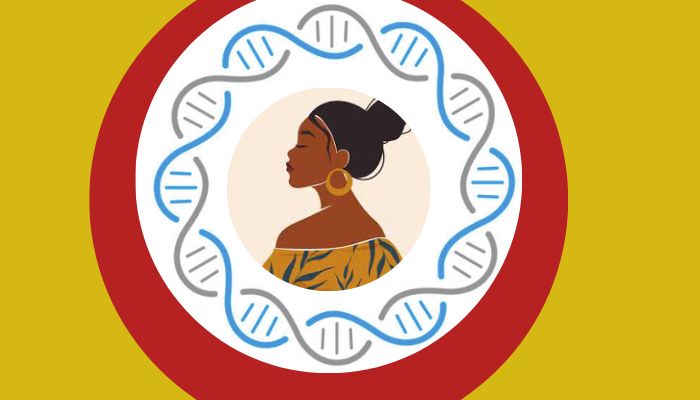This is our review of the best DNA Ancestry test for African Americans.
More and more African Americans are looking to trace their ancestry to Africa. Ancestry DNA tests can help you do just that more easily.
The proliferation of DNA ancestry test companies has made it even easier to access, right from the comfort of your home.
You might be wondering which is best for you. In this guide, we researched the best DNA ancestry test for African Americans.
What we assessed for the top DNA Ancestry Test for African American
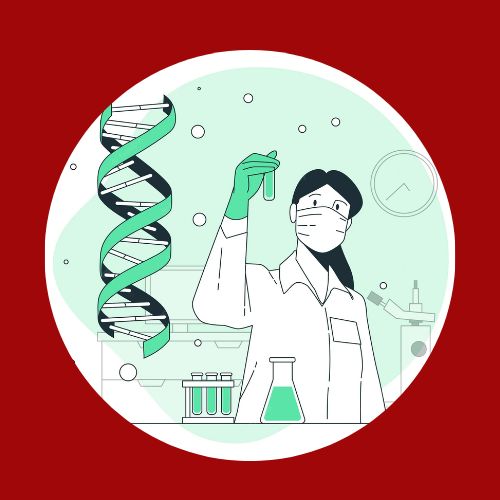
1. African relevance:
We assessed the best ancestry test companies that have exceptional coverage in various African regions and can accurately identify your African ethnicity.
2. Accuracy:
We also assessed the accuracy of these results, analyzing company claims against customer reviews.
3. DNA matching tools and Migration mapping:
These companies have matching tools that help you to connect African ancestry by finding people who share your DNA, as well as tools that help you track your ancestors around the globe and see where they moved to.
4. Speed:
These companies also deliver credible results promptly. As such, you don’t have to keep waiting for long.
5. Relevance:
If you’re looking to confirm your African American Ancestry, you have to choose a test and company that can provide you with a database to back up their findings and results. That’s exactly what we did for you.
6. Value:
We want to ensure you get your money’s worth, so you must get detailed information if you are paying a pretty penny for it.
Top 5 best DNA Ancestry Test for African American
- African Ancestry(africanancestry.com)
- AncestryDNA
- 23andMe
- FamilyTreeDNA
- Living DNA
Best DNA Ancestry Test for African Americans Reviewed
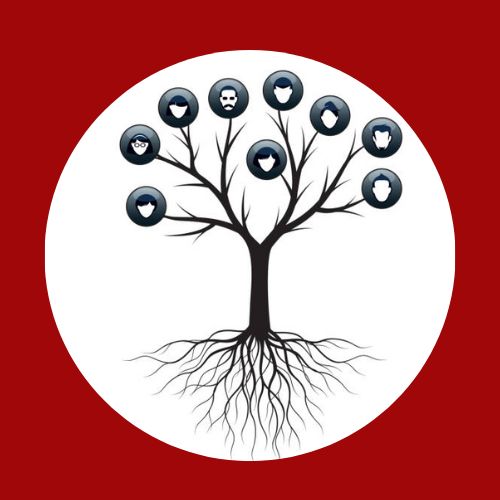
1. AfricanAncestry- Best for African American Ancestry
This is our top recommendation for the best DNA ancestry test for African Americans. AfricanAncestry is the only DNA ancestry testing company designated specifically for people from Africa or for that matter, African Americans.
Secondly, AfricanAncestry has the largest database of African samples in the world. AfricanAncestry also provides specific results, including the present-day African country and ethnic group, when results are African.
Confidentially, the company destroys 100% of your DNA samples and does not sell or share your genetic info.
AfricanAncestry is the only genetic ancestry tracing company whose test is used to confer citizenship in Sierra Leone. The company has helped more than 1,000,000 people discover the roots of their family tree.
As a black-owned business, it offers three main DNA testing services in MatriClan; DNA test to discover your mother’s maternal roots, available to both genders.
It also has PatriClan DNA testing to discover your father’s paternal roots, available to men only. Family Celebration Package to discover your family tree, available for both genders.
African Ancestry looks at the mitochondrial DNA mothers pass to all their children, or the Y chromosome fathers only pass on to their male children and trace it back to a present-day African country or ethnic group. This is called lineage tracing.
While some think that the cost at AfricanAncestry is too high, the results make it worth that price tag. No other test can break down your family into specific regions and areas of Africa, including the Ivory, Coast, Ghana and the central region.
Your results package will be delivered digitally including incentives such as four African ancestry t-shirts, six additional personalized certificates of Ancestry and an e-book on African History and exclusive access to Online Community on Facebook.
| Pros | Cons |
Offers three types of testing It has the largest database of African lineages of any genetic ancestry tracing company. Offers lineage tracing. Do not sell or share the DNA samples of their customers. Designed specifically for African Americans Can give you access to an exclusive/closed group | Does not include genetic matches Very expensive |
2. 23andMe- Best for Wellness DNA testing
Our second best DNA Ancestry Test for African Americans is 23andMe. This company is the only DNA test that includes health and wellness information for users.
23andMe is also a good test for those with African American roots. It tests autosomal mtDNA to trace maternal roots and Y-DNA to trace paternal roots.
The company works with 31 regions across the world, breaking down your results so you can know which specific region your ancestry comes from, as well as show the percentage of your genes that come from each region.
Though the basic test costs around $99, the cost of that extra testing can add $50 or more to your total cost. Some find that the extra testing is worthwhile because they want to know how their genes affect the way they act and think.
One downside is that it tends to lump major regions of Africa together, which can make it difficult to see where your ancestors lived.
Another issue with 23andMe is that it reserves the right to sell and share your confidential data. GlaxoSmithKline is a major pharmaceutical company that uses that data before testing new products.
| Pros | Cons |
Offers lots of genealogical and family tree data Can add health and wellness testing Stores your results indefinitely Has more than one million users | Shares your confidential data Some features cost extra |
3. AncestryDNA- Best for African American Ethnicity
If you’re curious about your family’s past, this is the recommended DNA ancestry for African Americans for you. AncestryDNA results give you more insight into your past. The company also gives you the option of keeping your results confidential or publishing them online.
It has the largest customer base and number of reference panels, giving it the broadest global representation. The majority are from Europe but have focused on expanding its depth in Africa, Asia and the Americas.
While it offers insight into your past, AncestryDNA cannot differentiate between maternal and paternal lineages.
The advantage of opting to share your results online is that the company provides you with a list of people who matched your results that you can then contact. This makes it easy to send messages to newly found relatives through the site.
You can also use the site’s message board to post questions about your family and receive answers.
The disadvantage is that all these benefits require an Ancestry.com subscription, which you can buy monthly or yearly.
AncestryDNA is recommended for African Americans because of all the regions it shows in your results. It gives you details on the smallest percentage of ancestry. For example, if you have even a small percentage of Europeans or Asians, your results will show that.
You should, however, read their terms and conditions before you decide to buy this test. Not only does Ancestry.com reserve the right to share your data with research facilities and institutions, but it can also share that data with law enforcement agencies.
| Pros | Cons |
More than 10 million registered users in the database Includes dozens of geographic regions Can connect you with related users Offers family tree and genealogy tools | Requires an expensive subscription to use all features Divides Africa into just a few regions |
4. FamilyTreeDNA- Best for Genealogical Research
FamilyTreeDNA offers two types of tests; a Y-DNA testing kit for men and an mtDNA testing kit for women. The results can prove whether two people share similar genes and are related, the geographic origins of your family and how deep your roots are in those regions.
When you add the Family Finder feature to your test, you can go back up to six generations to find other users who share your genetic makeup.
FamilyTree DNA is one of the best tests for African Americans who are new to the world of genealogical research. It makes the process of finding other family members easy and includes options for designing and building a virtual family tree.
The advantage is that you can change and add information as it becomes available and share a copy with loved ones.
However, the company can delete your data if you don’t use the site often, which means that you’ll want to keep a separate backup copy of that information.
| Pros | Cons |
Includes information from 24 genetic regions Keeps your results stored for up to 25 years Offers help to beginners It has maternal and paternal testing options | It has a small number of users in its database It can take up to eight weeks to process your sample |
5. Living DNA- Best for tracing connections to individual English counties
Living DNA is a great choice for specialists in African ancestry because it offers five times more detail in its African reports than any other test.
While it only covers 150 regions, it dives into these regions in much more detail, so you get even more insight from your report.
It includes 72 African sub-region estimates such as Somali, Tunisia, and Southwestern Bantu. Sub-regional mapping means Living DNA can pinpoint wherein each area of Africa you come from, helping you to get an accurate match.
With Living DNA, you can learn about your mtDNA and Y-DNA lines, tracing your ancestor’s steps as they moved from Africa to places around the globe; on both sides of your family.
As with some of my other top choices, Living DNA has a matching feature for tracking down your relatives. Make sure you opt into Family Networks to access this service and see how much DNA you share with other Living DNA users.
| Pros | Cons |
Offers five times more detail in its African reports than any other test. Tracing your ancestor’s steps as they moved from Africa Living DNA has a matching feature for tracking down your relatives It includes 72 African sub-region estimates | Long wait times of up to 4 weeks for shipping. Users outside of Europe may experience lower accuracy in results due to a smaller pool of gene data. |
Let’s compare The Best DNA Ancestry Test for African American Top 5 Best DNA Testing Kits
| African regions covered | Relative Finder | mtDNA & Y-DNA Mapping | Time to Results | Starting Price | |
| AfricanAncestry | ✔ | ✔ | 6-8 weeks | $299.00 | |
| AncestryDNA | 32 | ✔ | ✔ | 6-8 weeks | $99.00 |
| Living DNA | 72 | ✔ | ✔ | 6-8 weeks | $119.00 |
| FamilyTreeDNA | 17 | ✔ | ✔(separate tests) | 2-4 weeks | $79.00 |
| 23andMe | 27 | ✔ | ✔ | 6-8 weeks | $99.00 |
Things not to do when collecting samples of your DNA
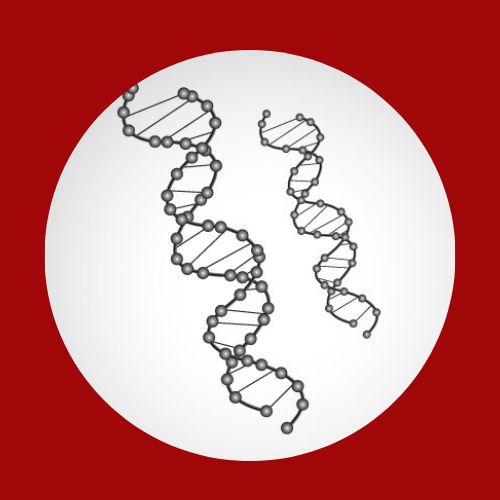
If you’re planning to take a DNA test and are ready to take a sample, make sure to avoid the following 30 minutes before collecting your sample.
Not adhering to these simple instructions may mar your results as your sample may be mixed with other substances. This means you’ll not have value for your money.
Therefore, 30 minutes before collecting your sample, avoid;
- Eating
- Drinking
- Smoking
- Brushing your teeth
- Using mouthwash
The limits of DNA testing
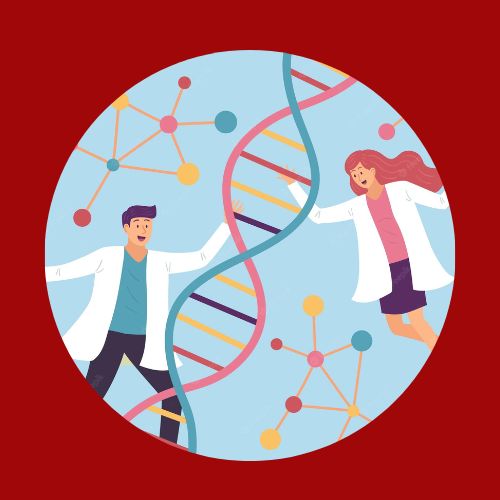
While we make all this evidence available as to which DNA test is best for you, it’s important to state that they are benign setbacks to available results.
According to research conducted by Ahébée on DNA testing, the vast majority of genetic reference groups are based on people who self-report their ancestry.
So while someone might be sure that they are of a specific ethnicity or that their family came from a specific place, that knowledge is often incomplete, and therefore not an accurate measure of ancestry.
That gets to the bigger question of what these tests are looking for. Ethnicity is a sociocultural factor; its fluid, and it changes over time. It’s not purely biological.
Similarly, most people have multiple ethnic and ancestral backgrounds, which means DNA tests most likely won’t be able to capture the whole breadth of their stories.
Particularly, companies do not just match you to one geographical area or region in the world; they assign you very specific percentages.
What to Look for in A DNA Ancestry Test for African American
As explained, all the DNA testing kits are different, although there are some similarities. As such, you should consider all angles, considering what you need from these tests before choosing a particular one.
As an African American person trying to trace your roots, there are some things you should consider when choosing a DNA test.
The following are some guidelines on what to look out for before choosing a test kit.
1. Autosomal DNA Test
One thing you may want to look for is a kit that does autosomal testing. DNA home testing kits in the past only tested your genes for one gender. This helps to find information about your mother’s family or your father’s family but requires that you go through two different tests to track your whole family lineage.
With autosomal testing, the lab will test your sample based on the available or both X and Y chromosomes. The results give you a better look at your heritage and can link you to distant relatives who took the same test and registered on the site.
2. Ethnic and Racial Testing
Although you can be sure that you come from specific regions or ethnicity in Africa, based on your family history, there may be some inaccuracies.
This can occur if you had ancestors who were sold into slavery. Slave ships transported captured men, women and children and carried them all around the world.
A good test can reveal if you share genes with people who lived in regions of Europe and North America. With ethnic and racial testing, you can also find out if your family previously lived in the Caribbean or other areas.
Thus, look out for tests that offer ethnic and racial testing.
3. Database Size and Family Tree
Another thing to consider is the database size, especially if you want to build your family tree. This refers to the number of registered users that the site has. AfricanAncestry tops our list as the company with the largest database.
A larger database means that the test can compare your genes and chromosomes to more users and find more connections. You can use the connections that you find to discover family members living all around the world.
Sites that include a family tree option let you add names and dates based on what you find on your relatives’ family trees.
Which African Ancestry DNA Test is the Best?
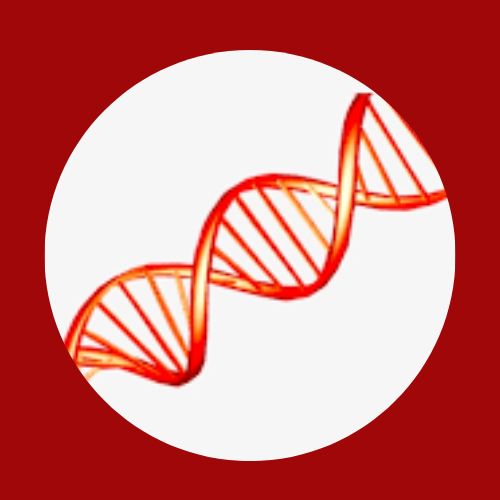
While your needs may depend on which ancestry DNA test you take, we recommend AfricanAncestry.com because it has the largest database of African samples in the world! This means accuracy, detail and value for your money.
AfricanAncestry also offers all the tests you need to trace specific regions in Africa, including Y-DNA, mtDNA, and Family packages.
What’s more, your results are 100% confidential and completely the company destroys 100% of your DNA samples and does not sell or share your genetic information with third parties.
Frequently Asked Questions (FAQs)
Which DNA test is most accurate for African Americans?
AncestryDNA – Best for African American Ancestry. AncestryDNA has the largest DNA customer database of any test available and analyzes over 700,000 genetic markers to accurately identify your ancestry. It covers 1,000+ regions, which includes 12 African regions.
Why should I take an African ancestry DNA test?
If you know you have African heritage or are curious to learn all about the ethnicities in your genes, a DNA test can help you find answers. A DNA test can tell you from which African regions your DNA originates, show you how your ancestors moved around the globe, and even put you in contact with long-lost relatives.
What’s the best DNA test to trace my African roots?
African Ancestry helps people of African descent trace their ancestral roots back to a specific present-day African country and tribe or ethnic group
Is 23andMe accurate for African Americans?
Most of the major DNA companies have databases in which people of European ancestry are overrepresented, and those of other regions are underrepresented. In 2018, 23andMe could only match people to three broad regions in sub-Saharan Africa; which means, that if you’re Black, you’re not going to get very specific results.
Can DNA Tell your race?
Ethnicity cannot be detected by DNA, but there is sometimes overlap with a person’s genetic ancestry. For example, people who share the same heritage will often live in the same places and marry people from similar backgrounds.
Reference;
Ahébée, S. (2021). For African Americans, DNA tests offer some answers beyond the ‘wall of slavery’. WHYY.
Read Related Articles:
